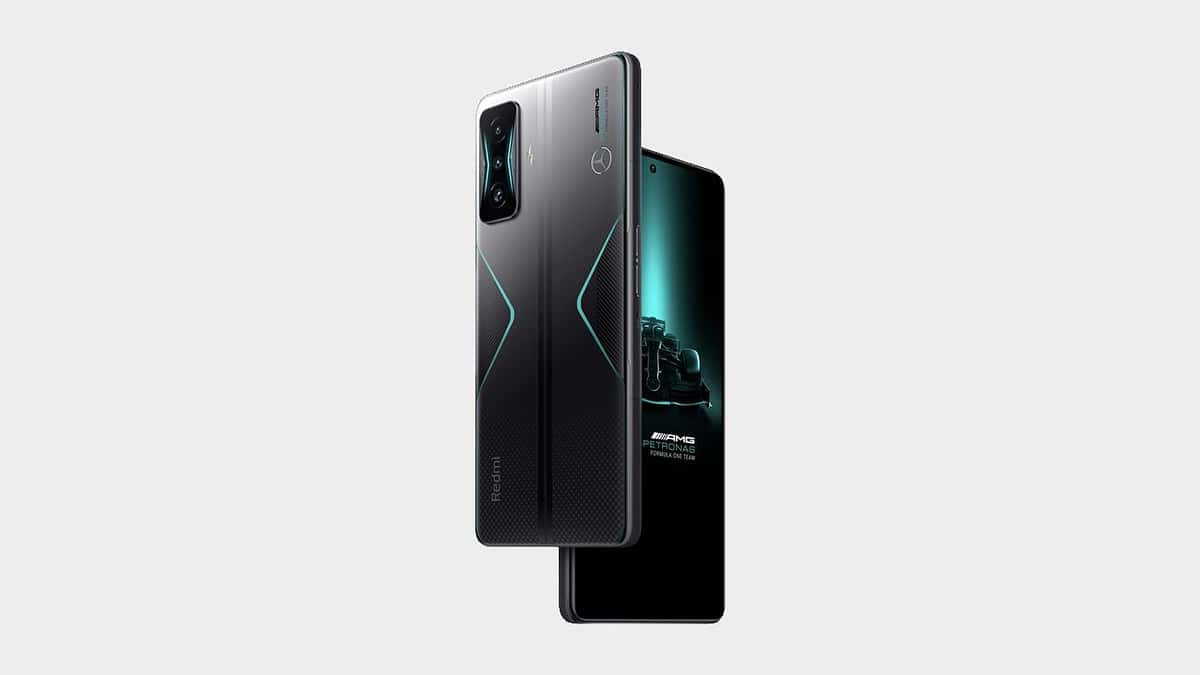Redmi K50G Underscores Game-focused Specs
3 min. read
Published on
Read our disclosure page to find out how can you help MSPoweruser sustain the editorial team Read more

The gaming community is in for a treat again with the release of the Redmi K50G last February 18 in mainland China. It greatly pronounces gaming functions from its shell design to its internal specs and capabilities.

Specs:
Processor: Snapdragon 8 Gen 1
Storage: LPDDR5, up to 3,200MHz, UFS 3.1
Heat Dissipation: Dual vapor chamber; Main + Secondary vapor chamber, 4,860mm² total area; Second-generation stainless steel VC; Second generation white graphene, efficiency increased by 20%
Display: 6.67″ CSOT FHD, 120Hz Refresh Rate, Up to 480Hz touch sampling rate, TrueColor Display + MEMC, 1920Hz PWM adjustments, Gorilla Glass Victus, DisplayMate A+
Haptics: CyberEngine X-axis motor 1016
Cameras: Rear (64MP Sony IMX686 main camera, 8MP ultra-wide angle camera, and 2MP telemacro camera)/Front (20MP front camera)
Dimensions and Weight: 162.5mm x 76.7mm x 8.5mm/210g
Storage: 8GB+128GB, 12GB+128GB, or 12GB+256GB
Redmi K50G Phone:
Redmi K50G comes with a sport automobile-inspired design after partnering with Mercedes-AMG Petronas Formula One Team for this model edition. Yet, what really makes it a proper fit for gamers are the monstrous upgrades inside that can deliver unrivaled speed and power.
It boasts the Snapdragon 8 Gen 1 flagship mobile platform that provides the newest generation 4nm process technology, together with CPU, GPU, AI, ISP, UFS 3.1 upgrades, and more. According to the company, the collective power of these upgrades increases the GPU performance of the phone up to 52%.
Furthermore, the Redmi K50G has three antennas that support WiFi 6E instead of the typical dual WiFi antennas. Their newly refined anti-interference and low-latency optimization algorithms improve the connection further, translating to a lower game latency by 30%.
On the other hand, Redmi included the new heat-dissipating solution with dual vapor chambers (which split up the processor and charging heat source components) to assist the system in handling the heavy load of gaming activities. The chambers cover 40% of the phone’s body, resulting in more controlled heat dissipation during games or when using the device as it charges. As a plus, the device offers a large 4,700mAh battery with a high-efficiency dual pump, MTW technology, and a 17-minute 100% fast-charging feature.
It also brags an A+ DisplayMate-grade display with precise color reproduction via JNCD?0.18 that supports 10-bit color. This will allow users to quickly identify characters in the dark with the help of the robust 120Hz refresh rate and 480Hz touch sampling rate. And to further boost the user’s comfort and enhance button stability and rebounds, Redmi K50G offers dedicated gaming buttons with eight pop-up magnets and silicone button fretting. Even more, the gaming buttons allow hotkey customization.
Redmi K50G likewise ensures a better connection between the gamer and the game by injecting features that can improve user experience. This includes the CyberEngine X-axis motor 1016 with the newest ESA-integrated multi-pole magnetic steel structure. This element produces a vigorous transient vibration of 5.12Gpp and covers vibration 50Hz-500Hz frequency, allowing a more noticeable vibration effect. This complements the model’s quad speakers comprised of dual 1115 subwoofers and dual 0611 tweeters, giving richer treble and extending the frequency response range to 12,000Hz.








User forum
0 messages